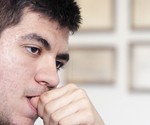I Need Help Sleeping During Opiate Withdrawal
When you stop taking opiates, withdrawal symptoms will begin. Once you reach a state of dependence, your body demands that you continue to give it opiates or it retaliates with a number of unpleasant symptoms.
Trying to cope with the pain and discomfort of withdrawal is horrid. One of the symptoms that plagues people is insomnia, but there are also many symptoms that create difficulty sleeping.
So, addressing specifically insomnia is a good place to begin, but other symptoms will need to be treated as well in order for you to begin getting the quality sleep that you need.
If you attempt to quit on your own and/or go cold turkey, you are setting yourself up for days separated by only a few hours of sleep. Without that rest, you won’t be prepared to cope with the pain of withdrawal and you will keep using.
Instead, it is best to enter a drug addiction treatment program with a detoxification stage. During that time, clinicians will work to alleviate your pain and help you to get the valuable rest that you need during this difficult stretch.
To learn more about the ways that a professional, qualified facility can help you during detox and treatment, call 888-602-1971(Who Answers?). You don’t need to suffer with addiction any longer. You can get the support and assistance that you need and deserve. Take back your life.
Why Do I Need Quality Sleep?

Insomnia is common during opiate withdrawal.
If you have been abusing opiates for a long time, they have probably helped you to fall asleep and even to stay asleep. If you suffer from chronic pain and use opiates to curb that, the reduction in discomfort was probably enough to help you rest. When you go through detox, all of that stops. Sleeping during withdrawal becomes a struggle, and that has a hugely negative impact on your recovery, as well as your overall health.
According to the National Heart, Lung, and Blood Institute, “Getting enough quality sleep at the right times can help protect your mental health, physical health, quality of life, and safety.” When you sleep, your brain is working to create new pathways that will help you to remember information and to learn. However, when you are sleep deprived, activity in your brain is changed and these pathways aren’t properly constructed. This means you will have a hard time solving problems, making decisions, managing your behavior and emotions, and coping with change. Imagine trying to get through detox and treatment with this level of impairment.
Physically, sleep:
- Is involved in the repair and health of your heart and blood vessels
- Triggers the release of hormones that repair cells and tissues
- Maintains the balance of the hormones that make you feel hungry and full
- Is the backbone of the immune system
Withdrawal is physically taxing and sleep can help limit the severity of your other symptoms by helping the body to heal.
Can Medications Help?
A formal drug addiction treatment program will manage your withdrawal symptoms with medications. The following are used specifically to ease the symptoms of withdrawal:
- Methadone
- Clonidine
- Buprenorphine
And, if these don’t give you the relief that you need to sleep, adjunctive medications are used. According to the Substance Abuse and Mental Health Services Administration, insomnia is often treated with Benadryl, Desyrel, or Vistaril. If you are unable to sleep because you are experiencing too much pain in your head, muscles, and/or bones, you may be given Tylenol, aspirin, or Motrin.
What Other Methods Can Be Used to Help Me Sleep?
Detoxification in a rehab center generally takes a medical approach, but other methods are used to help you to sleep, as well. Drug addiction treatment programs may:
- Keep the room you sleep in dark and cool
- Facilitate an early bedtime and sleep schedule
- Provide you with a blindfold
- Offer you a hot bath before bedtime
- Provide soothing herb teas
- Encourage you to engage in physical activity early in the day so that your body builds up endorphins to fight insomnia
- Urge you to try meditation and mindfulness to reduce the panic that sets in when you can’t sleep
- Offer massage to relax your nervous system and combat insomnia
- Limit your access to television and media that may further insomnia
These are some of the methods used, but we would love to discuss some others with you. Call 888-602-1971(Who Answers?) and speak with an addiction specialist who can assist you in understanding how addiction treatment works.





